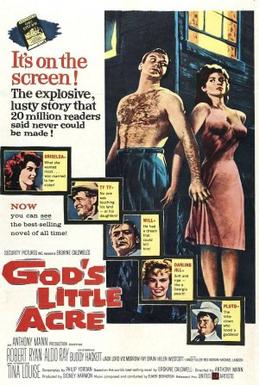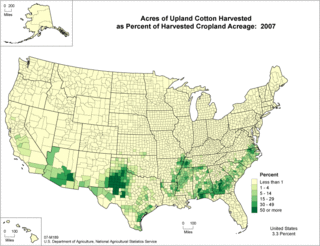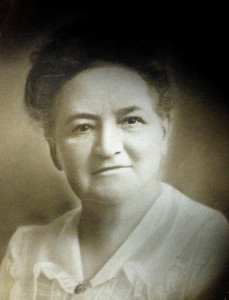Related Research Articles

Columbia County is a county located in the east central portion of the US state of Georgia. As of the 2020 census, the population was 124,035. The legal county seat is Appling, but the de facto seat of county government is Evans.

Statesboro is the largest city and county seat of Bulloch County, Georgia, United States, located in the southeastern part of the state.

Moreland is a town in Coweta County, Georgia, United States. As of the 2020 census, the town population was 382.

The boll weevil is a beetle that feeds on cotton buds and flowers. Thought to be native to Central Mexico, it migrated into the United States from Mexico in the late 19th century and had infested all U.S. cotton-growing areas by the 1920s, devastating the industry and the people working in the American South. During the late 20th century, it became a serious pest in South America as well. Since 1978, the Boll Weevil Eradication Program in the U.S. allowed full-scale cultivation to resume in many regions.
Clarence Jordan was an American farmer and New Testament Greek scholar, was the founder of Koinonia Farm, a small but influential religious community in southwest Georgia and the author of the Cotton Patch paraphrase of the New Testament. He was also instrumental in the founding of Habitat for Humanity. His (2nd) cousin, Hamilton Jordan, served as White House Chief of Staff during the Jimmy Carter administration.

Penfield, Georgia, United States was established shortly after 1829 in Greene County, and named in honor of Josiah Penfield, a Savannah merchant and silversmith, who bequeathed $2,500.00 and a financial challenge to the Georgia Baptist Convention to match his gift for educational purposes. The convention, led by Billington Sanders, organized a manual labor school which opened in 1833 as Mercer Institute, in honor of Rev. Jesse Mercer of Greene County, a major contributor to the matching gift request.

The Boll Weevil Monument in downtown Enterprise, Alabama, United States is a prominent landmark and tribute erected by the citizens of Enterprise in 1919 to show their appreciation to an insect, the boll weevil, for its profound influence on the area's agriculture and economy. Hailing the beetle as a "herald of prosperity," it stands as the world's first monument built to honor an agricultural pest.
God's Little Acre is a 1933 novel by Erskine Caldwell about a dysfunctional farming family in Georgia obsessed with sex and wealth. The novel's sexual themes were so controversial that the New York Society for the Suppression of Vice asked a New York state court to censor it. Although controversial, the novel became an international best seller with over 10 million copies sold, and was published as an Armed Services Edition during WWII. God's Little Acre is Caldwell's most popular novel, although his reputation is often tied to his 1932 novel Tobacco Road, which was listed in the Modern Library 100 Best Novels. God's Little Acre was later adapted as a 1958 film starring Robert Ryan.
Elko is an unincorporated community in Houston County, Georgia, United States, south of the city of Perry. Founded circa 1890 as a railroad town, Elko prospered in the early 1900s as a local depot and trading center for cotton planters in southern Houston County.
The Boll Weevil Eradication Program is a program sponsored by the United States Department of Agriculture (USDA) which has sought to eradicate the boll weevil in the cotton-growing areas of the United States. It's one of the world's most successful implementations of integrated pest management. The program has enabled cotton farmers to reduce their use of pesticides by between 40-100%, and increase their yields by at least 10%, since its inception in the 1970s. By the autumn of 2009, eradication was finished in all US cotton regions with the exception of less than one million acres still under treatment in Texas.
Shiloh is a small unincorporated farming community on Shiloh Road near White Oak in north central Gregg County, Texas, United States. Located just south of the Upshur County line, Shiloh was established by formerly enslaved African Americans just after the end of the Civil War.

Klondike is an unincorporated community in Delta County, Texas, United States. It lies in the southwest corner of the county at the junction of Farm to Market Roads 1528 and 2890, 3 miles southwest of Cooper. As of the 2000 Census, its population was estimated at 135.

God's Little Acre is a 1958 American comedy-drama film of Erskine Caldwell's 1933 novel of the same name. It was directed by Anthony Mann and shot in black and white by cinematographer Ernest Haller. Although the film was not released until August 1958, its production schedule is indicated as September 11 to late October 1957.
"Boll Weevil" is a traditional blues song, also known by similar titles such as "Boweavil" or "Boll Weevil Blues". Many songs about the boll weevil were recorded by blues musicians during the 1920s through the 1940s. However, a rendition by Lead Belly recorded in 1934 by folklorist Alan Lomax led to its becoming well-known. A 1961 adaptation by Brook Benton became a pop hit, reaching number two on the Billboard Hot 100.
Spanish Camp is an unincorporated community in north central Wharton County, in the U.S. state of Texas. The community is located between Egypt and Hungerford along Farm to Market Road 1161 (FM 1161) near its intersection with Farm to Market Road 640 (FM 640). After the Mexican army of Antonio López de Santa Anna camped at the site in 1836, the community took the name Spanish Camp. In 1870 a church in the community was founded by former slaves and the congregation still existed in 2013.

The United States exports more cotton than any other country, though it ranks third in total production, behind China and India. Almost all of the cotton fiber growth and production occurs in the Southern United States and the Western United States, dominated by Texas, California, Arizona, Mississippi, Arkansas, and Louisiana. More than 99 percent of the cotton grown in the US is of the Upland variety, with the rest being American Pima. Cotton production is a $21 billion-per-year industry in the United States, employing over 125,000 people in total, as against growth of forty billion pounds a year from 77 million acres of land covering more than eighty countries. The final estimate of U.S. cotton production in 2012 was 17.31 million bales, with the corresponding figures for China and India being 35 million and 26.5 million bales, respectively. Cotton supports the global textile mills market and the global apparel manufacturing market that produces garments for wide use, which were valued at USD 748 billion and 786 billion, respectively, in 2016. Furthermore, cotton supports a USD 3 trillion global fashion industry, which includes clothes with unique designs from reputed brands, with global clothing exports valued at USD 1.3 trillion in 2016.

Ida Elizabeth Brandon Mathis (1857–1925) was an American farmer and businesswoman who advocated for methods that would improve conditions for Southern farmers, including crop diversification and rotation and better methods of financing for small farmers. She is credited with reducing agricultural poverty in Alabama and diminishing the state's dependence on imported food.

The Black Belt in the American South refers to the social history, especially concerning slavery and black workers, of the geological region known as the Black Belt. The geology emphasizes the highly fertile black soil. Historically, the black belt economy was based on cotton plantations – along with some tobacco plantation areas along the Virginia-North Carolina border. The valuable land was largely controlled by rich whites, and worked by very poor, primarily black slaves who in many counties constituted a majority of the population. Generally the term is applied to a larger region than that defined by its geology.
Bono is an unincorporated community in Johnson County, Texas. Located on Farm to Market Road 2331 in the southwestern portion of the county, Bono is a mile west of U.S. Highway 67.
Rossville is an unincorporated community in Atascosa County, in the U.S. state of Texas. According to the Handbook of Texas, the community had a population of 200 in 2000. It is located within the San Antonio metropolitan area.
References
- 1 2 3 4 "Georgia Historical Society to Dedicate "Lord's Acre" Historical Marker, "Georgia Historical Society". Archived from the original on 2013-05-31. Retrieved 2013-04-15.
- ↑ "HISTORY OF BLUFFTON BAPTIST CHURCH 1846 - 1981," accessed at http://www.thegagenweb.com/gaclay/bluffton_bc_history.htm
- 1 2 3 4 5 6 "Religion: Lord's Acre," Time MagazineSeptember 1, 1924, accessed at: https://web.archive.org/web/20101129231224/http://www.time.com/time/magazine/article/0%2C9171%2C769002%2C00.html
- ↑ Farmers Federation News, March 1927, quoted in We Plow God's Fields: A Biography of James G.K. McClure, Jr. (Boone, N.C.: Appalachian Consortium Press, 1991), pp. 349-350.
- 1 2 "About the Lord's Acre," "About | the Lord's Acre". Archived from the original on 2013-03-16. Retrieved 2013-04-15.
- ↑ "Sumner Defeated in Fight on a Book," New York Times, May 24, 1933